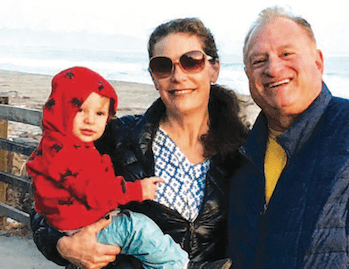
Trying College on for Size
By Suki Wessling
This is the second in our three-part series on helping teens prepare for life after high school. Our first, “What Do You Want To Do With Your Life? Teens Face Life Decisions Earlier Than Ever” was published in November. In this installment, we investigate the idea of “college fit” and question the assumption that students should aim for the most prestigious college possible.
Frank Bruni’s book “Where You Go Is Not Who You’ll Be” is full of stories of failure. Students fail to get the grades they need to apply to the “elite” college their friends are applying to. Students fail to get into their college of choice. Colleges fail to make good grades on the widely scorned but all-important U.S. News & World Report “Best Colleges” list.
The funny thing is, the book is an uplifting read, highly recommended for parents who are concerned about their teens’ academic and employment future.

It turns out that failing to get into an elite college is, sometimes, the best thing that can happen to a student.
Bruni’s argument is that no matter what lens you look at it through, going to a highly competitive college is not nearly as important as finding the college that fits you. Students who spend their high school years trying to mold themselves into the person that an elite college is looking for might find, ultimately, less success and satisfaction than students who go looking for a college that fits who they already are or who they want to become.
How to begin assessing college ‘fit’
Local college and career counselors find themselves working to help students and parents see past the implicit biases that can color their college search. Many families start with assumptions that limit their thinking about what sort of college, if any, will fit their student’s actual needs.
“The goal is not to ‘get in’ to what someone else considers to be the ‘best’ college, but to find schools that are right for the student,” explains counselor Laurie Kiguchi.
Counselors recommend that students consider three broad areas in order to determine a possible good college fit: academics, community, and cost.
Academics: questions to ask
Do you have to apply with a major in mind?
A growing trend for colleges is to insist that students apply for a particular program, especially for impacted majors such as engineering. But this inflexibility doesn’t actually serve most students’ needs, explains college counselor Kevin Hislop.
“The vast majority of 15- to 18- year-olds have no idea what they want to do with their lives,” says Hislop. “I much prefer guiding students toward institutions that either let kids explore academically for a year or two prior to declaring their majors, or, at the very least, make it reasonably easy to switch majors should that become necessary.”
Does the university have a good department in your area of interest?
“Some people get wooed by the school, then they’ll go and the department for what they are studying is not great,” says college and career counselor Jill Schontag. “Maybe a department at another school without such an exciting name would have been a better department for that major.”
What is the learning experience like?
“What is the educational environment?” asks Kiguchi. “Is it competitive or cooperative? Research-focused or hands-on learning? Large lectures or small seminars?”
Hislop says that the difference between large and small class size can offer different opportunities.
“Are you OK with classes that include several hundred people where you work primarily with teaching assistants, or do you want professors who know you on a first-name basis to invite you and your classmates over to their houses for dinners?” Hislop asks.
Schontag adds that different state college systems may present a similar major in a different way, so some students might have their needs served better at a less prestigious school.
“At UC you’re in huge classrooms, lectures, it’s more based on theory, continuing in academia. CSU has smaller classes, more interaction with the professor, and there’s more of a transition from education to career. They train people to do jobs they can do with a bachelor’s. It’s a different style, a different mission on who they’re working with.”
Community: possibilities to ponder
Colleges create their own communities, but also take part in the community around them.
“Happy students tend to be more engaged at school and graduate!” Laurie Kiguchi points out. “Consider location (nearby or across the world), environment (urban, suburban, rural, coastal, desert, mountains), social scene (Greek life, big sports), religious (not, or with lots of religious required coursework and participation), political climate, student body (outdoorsy, athletic, intellectual, preppy).”
Hislop offers a list of questions that students can ask themselves in order to focus their college search.
“How liberal or conservative is the school; is it known as a bastion of social activism, or is it committed to steadfastly upholding the traditions of the past? Is the institution religiously affiliated, single sex, or a Historically Black College, and are those designations important to you? Do you prefer an incredibly active fraternity and sorority scene, or do you want no Greek System at all? Can you live in a rural community, or do you require an urban or suburban environment? Are you amenable to attending a college that has a student population equal to that of your high school, or do you want to experience a university that’s the size of a small city?”
Another question is whether the student would benefit from a challenge. Just as rural students find their horizons widened when faced with a big city environment, many a big city kid has undergone transformation at rural colleges. Some students, especially from politically homogeneous communities like Santa Cruz, thrive when they’re thrown into a new political milieu. West Coast surf kids might find a thing or two to learn in a land-locked manufacturing town.
Family considerations are also important. Bruni’s book points out over
and over again that students who turn down exciting academic opportunities because they want to be close to their home communities do not necessarily suffer in the long run.
Cost: the buck stops here
Everyone knows that college costs more than ever. The graphs showing stagnant wages against the steep, red line of rising educational costs can be daunting. Kiguchi says that families often tackle the cost question in the wrong order.
“Families need to focus on how and what they can pay for college and incorporate it into the initial college search,” she explains. “’Waiting to see where the student gets in’ and then figuring out how to pay for it is not a sound strategy. By the time you do this, it may be past the deadlines to apply to schools that could be a good fit and be affordable.”
Students who will need loans for college should do the math and see how long it will take them to pay off those loans in their likely field of employment. Graduating from medical school with heavy undergraduate debt, for example, can be workable if the student plans to be a surgeon. But it’s less optimal if the student’s dream is to offer family medical care in poor communities.
Students can also balance educational debt with other opportunities. A student might choose a state college over paying full tuition at a private college so that they can study abroad and not focus on getting paying work in the summers.
Finally, make sure you know how a potential private school will weigh your family’s income. Some private schools now give generous need-based scholarships for middle class families. And a growing trend is for some state schools to offer reduced out-of-state tuition to students coming from certain other states. For example, the Western Undergraduate Exchange is an agreement between a number of West Coast institutions to offer reduced out-of-state tuition to students from Western states.
What really matters
Bruni’s book relies heavily on anecdotes about people who have landed in successful careers after missing the boat on getting into “elite” colleges. But he also crunches the numbers and presents the facts. For example, if your focus is on being successful in business, be aware of where the CEO’s of the top ten Fortune 500 companies got their undergraduate degrees: “University of Arkansas; the University of Texas; the University of California, Davis; the University of Nebraska; Auburn; Texas A&M; the General Motors institute (Kettering); the University of Kansas; Dartmouth College and the University of Missouri-St. Louis. Just one Ivy League school shows up.”
Amongst successful politicians, undergrad alma maters include Eureka College, Georgia Southwestern College, Whittier College, and Miami University of Ohio. According to Bruni, “Among the 100 men and women in the United States Senate in mid-2014, fewer than 30 got their college degrees in the Ivy League.”
Looking to get into a great PhD program? Bruni says that almost all the top feeder schools for doctorate degrees are small liberal arts colleges, even for the sciences.
Hoping to get a prestigious Fulbright Scholarship? More Fulbright scholars come from state schools well outside the “top 50” than come from the Ivy League.
Finally, trust your gut
As all college counselors know, no teen knows where life will lead them. But in some cases, teens make a choice knowing that it’s not right for them. Jill Schontag also works with adults who are exploring career changes, and she says she sees it all the time.
“A lot of my adults come in saying, ‘I’ve been trying to be this person for 20 years, and I can’t do it anymore’,” she explains. “With teens, I ask, ‘Why are you doing this major?’ They’ll say, ‘I’m going to make a lot of money, I know there are a lot of jobs’.”
Given what she’s seen, she can tell them with authority what’s going to happen if they pursue money instead of their passions.
“You can drive the nicest Tesla to work every day but if you don’t like what you’re doing, you’re not going to be happy.”
The one common goal that humans have is to seek happiness. Looking for a good college fit is one small part of setting ourselves on that path.
Suki Wessling is a local writer and the mother of a teen and a college student. Read more at www.SukiWessling.com.


You May Also Like

Cabrillo Game Designers Get a 10 out of 10
March 1, 2019
Letter from the Editors March 2019
March 1, 2019

